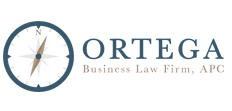Employment Law – Workplace Gamling
Although employers do not think about employees when we think about basketball, the annual frenzy of “March Madness” (the NCAA men’s basketball tournament) has changed that perspective.
The outplacement firm that reports the basketball tournament’s potential cost to employers drew headlines this year with it’s calculation of a 1.2 billion dollar loss nationwide for every unproductive work hour during the first week of the tournament (the “Challenger Report”.)
Additionally, the report points to specific, ancillary issues that affect productivity as a result of March Madness-entranced employees – such as the slow down of companies’ Internet connections, which lead to lagging email response times and cause workers to take longer lunch breaks.
Such troubling numbers are enhanced by surveys like MSN’s, which recently reported that 86% of employees will spend at least some time at work keeping track of the March Madness action and that more than half of workers said they would devote at least an hour to the games during the first two days, while 6% of employees said they would take time off work to watch.
Even though the Challenger Report numbers are challenged by different sources, March Madness nonetheless highlights a continuous/year-round issue for businesses across the country: Workplace gambling. It is undisputed that tournaments such as March Madness result in employee/worker gambling. Although March Madness gambling may seem innocuous, employers should be cautious when the terms involve money or other valuable property.
According to an MSN survey, during the tournament, 58% of workers will participate in at least one pool, with more than a third of survey respondents believing that their bets will offer a better return than their 401(k) portfolios; and, according to the FBI, March Madness generates $2.5 billion in illegal wagers each year.
An office pool is considered gambling, which is illegal in the State of California. Specifically, California Penal Code Section 337a makes it illegal for individuals or employers to participate in gambling in the workplace, while Penal Code Section 336.9 provides for a maximum fine of $250 for participating in betting pools.
It is therefore wise for employers to be vigilant of these activities, particularly during highly popular and/or publicized sports tournaments such as March Madness, and determine whether these tournaments are negatively affecting their workers’ productivity and/or creating an illegal activity within their business.
The Challenger Report suggests that employers should balance its findings regarding productivity loss with employee morale; and, it recommends that employers “cut workers some slack, particularly in an economy that has left many workplaces understaffed”
Based on the illegal nature of gambling and California’s clear restrictions of this practice, this suggestion may prove harmful to California employers. Instead, Employers are better protected by consulting with their employment law attorney to determine the effect or exposure, if any, that sports tournaments have on their business, and creating and enforcing personnel policies based on those findings. Employers should, nonetheless, not allow any form of gambling, no matter how innocuous it may seem. Rather, employers should create a course of conduct that will demonstrate to its employees that all gambling is illegal and will therefore not be tolerated.

